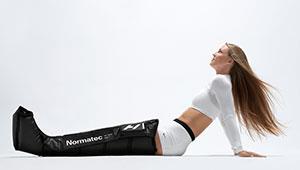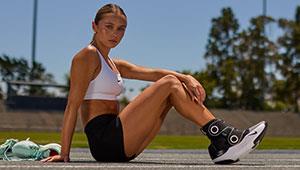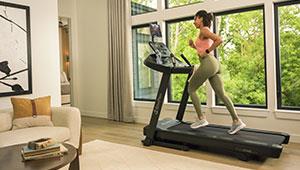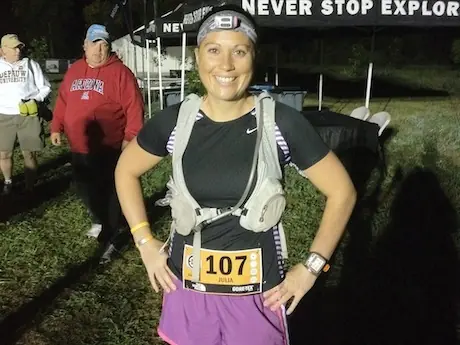
As told to Jessica Sebor
Myth #1: Running is Bad for Your Knees
Dr. Jason Karp: People assume that because running requires pounding the ground, it must be damaging to your knees—but this myth is completely false. There's no research that shows a greater instance of joint issues or osteoarthritis in people who run versus those who do not. On the contrary, studies show that running can be beneficial for joints as it strengthens the surrounding musculature and increases bone density.Myth #2: Women Shouldn't Run While Pregnant
JK: Running is actually very good for pregnant women. It can help ease delivery and encourage the flow of blood, oxygen and nutrients to the developing fetus. Almost all women can run up until the third trimester, and many can run through their final trimester. However, I don't recommend that women try to increase their mileage or speed while pregnant, as the body is already under a good deal of stress during this time. And always discuss your exercise plans with your doctor.Myth #3: Runners Should Stretch Daily
JK: Research shows that the only benefit of stretching is to increase your flexibility. There is no evidence that stretching will ward off injury or improve your speed. If you stretch before you run, this may actually have a negative impact on performance. Runners who want to increase their flexibility should stretch only after running, or even better, completely apart from their running workout.Myth #4: The Pricier the Shoe, the Better It is for Your Foot
JK: More expensive doesn't necessarily equal better. It can mean there's more technology in the shoe—or it can simply mean that it's a flashy new model with a high markup price. Most runners don't require all the bells and whistles found in fancy styles. The best shoe for you comes down to what you need for your foot type and running style. Look for a shoe that matches your level of pronation and feels comfortable immediately out of the box.Myth #5: Eating Pasta the Night Before a Race Will Boost Performance
JK: There is no need to "carbo load" for any race under two hours long. Eating pasta before a 5K or 10K will provide no benefit at all. If you are racing a marathon, you should add more carbs to your diet, but start doing so two weeks before your race—not the night before. When you begin tapering for the race, I recommend increasing your intake of carbs so that they account for 70 percent of your total daily calories. This will maximize the storage of glycogen in your muscles, which can provide energy late into the race.
Myth #6: Running in the Cold Will Damage Your Lungs
JK: Our bodies have a very good system of heating and moistening air. Unless temperatures are well below 0 degrees, there is absolutely no danger in running in the cold. The burning sensation some people feel while running in frigid temperatures is a harmless nervous response. Just like when you eat something cold and it hurts your teeth, when you breathe cold air, your throat may sting. The discomfort won't cause any damage, and the air will warm up by the time it reaches your lungs. Sign up for a race online.
Sign up for a race online.
Dr. Jason Karp is a nationally recognized coach and owner of runcoachjason.com. He holds a Ph.D. in exercise physiology and is founder and coach of REVO2LT Running Team and Dr. Karp's Run-Fit Boot Camp. He is the author of four books, including 101 Developmental Concepts & Workouts for Cross Country Runners, 101 Winning Racing Strategies for Runners and Running for Women.
Jessica Sebor is the editor in chief of Women's Running magazine.
About the Author

Women's Running is the go-to source for women who are chasing their dreams. Women's Running empowers the ever-growing community of women runners to live a healthy lifestyle via editorial content focused on running, fitness, nutrition and wellness. For more information, please visit womensrunning.com.
Get ACTIVE on the Go


Couch to 5K®
The best way to get new runners off the couch and across the finish line of their first 5K.
Available for iOS | Android








Discuss This Article